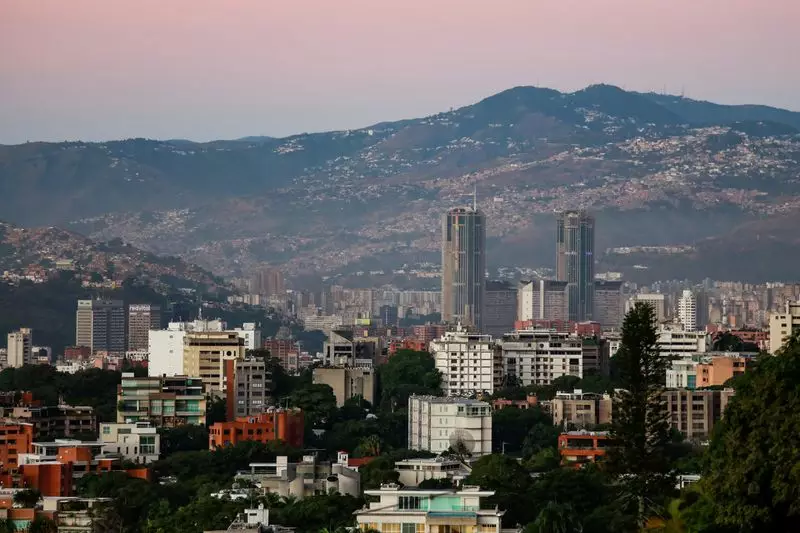On the backdrop of political turmoil and contested elections, the United States has taken decisive action against Venezuelan officials, exacerbating the already tense relations between the two nations. On the day of President Nicolás Maduro’s inauguration for a contested third term, the Biden administration imposed sanctions on eight key Venezuelan officials and significantly increased the financial reward for information leading to Maduro’s arrest from $15 million to $25 million. This move reflects a continuation of the U.S. strategy to pressure the Maduro regime in response to what is widely regarded as an illegitimate electoral process.
The sanctions target senior members of Maduro’s administration, including Hector Obregon, the newly appointed head of the state oil company PDVSA, and critical figures in both the transportation sector and the military. This coordinated action was not limited to the U.S.; Britain, Canada, and the European Union announced similar measures against various Venezuelan officials, creating a unified front that emphasizes international discontent with Maduro’s governance.
The contentious nature of the Venezuelan electoral process has drawn widespread scrutiny internationally. Maduro’s claim of victory is met with significant skepticism, particularly from opposition figures who assert that Edmundo Gonzalez emerged as the actual winner of the election. International observers have described the electoral environment as unfair, further complicating Maduro’s legitimacy. The Venezuelan electoral authority and judiciary have backed Maduro’s victory, yet they failed to provide detailed results that could quell dissenting opinions.
The opposition, rallying behind Gonzalez, claims to possess independent data that supports their narrative of a landslide victory. Such contrasting claims have fueled a growing divide within the country, leaving a large portion of the public disillusioned. This political impasse not only reflects a crisis in governance but also serves as a catalyst for potential unrest, as the government has resorted to crackdowns on opposition activists to maintain control.
Sanctions represent a primary tool employed by the U.S. to influence political change in Venezuela. Proponents argue that these measures are necessary to hold Maduro accountable for corruption and human rights abuses. Conversely, critics contend that sanctions have disproportionately affected the Venezuelan populace, leading to increased poverty and chaos. The Maduro administration’s narrative frames these sanctions as part of an “economic war” waged by foreign powers aimed at destabilizing the nation, thus rallying nationalistic sentiments among supporters while deflecting responsibility for the country’s economic woes.
This propaganda narrative has played a significant role in shaping public perception of the crisis in Venezuela, allowing the regime to partially deflect blame onto external actors. While supporters celebrate the government’s resilience, a substantial portion of the population continues to suffer from pervasive shortages of basic goods and deteriorating living conditions.
The international response to the Venezuelan crisis has been multi-faceted and complex. Nations such as China, Russia, and Iran have shown unwavering support for Maduro, viewing their alliance as a strategic move against U.S. influence in the region. Meanwhile, the Biden administration’s approach contrasts sharply with that of his predecessor, Donald Trump, who adopted a “maximum pressure” strategy characterized by stringent sanctions. Biden appeared to soften this approach temporarily before reinstating restrictions, indicating that U.S. policy toward Venezuela lacks coherence.
As Biden prepares to leave office, the incoming Trump administration faces the question of how to navigate this precarious situation. Trump’s campaign rhetoric emphasizing immigration control complicates the dynamics, particularly with large numbers of Venezuelans seeking refuge in the U.S. The potential for mass deportations looms large as failure to cooperate with Venezuelan authorities could undermine efforts to manage immigration effectively.
As the crisis evolves, the stakes for both the U.S. and Venezuela remain high. With Maduro entrenched in power and international scrutiny intensifying, the path to a peaceful resolution seems increasingly elusive. The U.S. stands firm in its commitment to support democratic voices in Venezuela, but whether further sanctions will lead to actionable change or exacerbate the humanitarian crisis is highly debated.
Moving forward, the international community must find a balanced approach that addresses the root causes of the Venezuelan crisis while prioritizing humanitarian considerations. The need for dialogue, both between rival factions within Venezuela and with external powers, has never been more critical. As the dynamics shift once more, the prospects for Venezuelans seeking a better future rest precariously at the intersection of politics, economy, and human rights.

